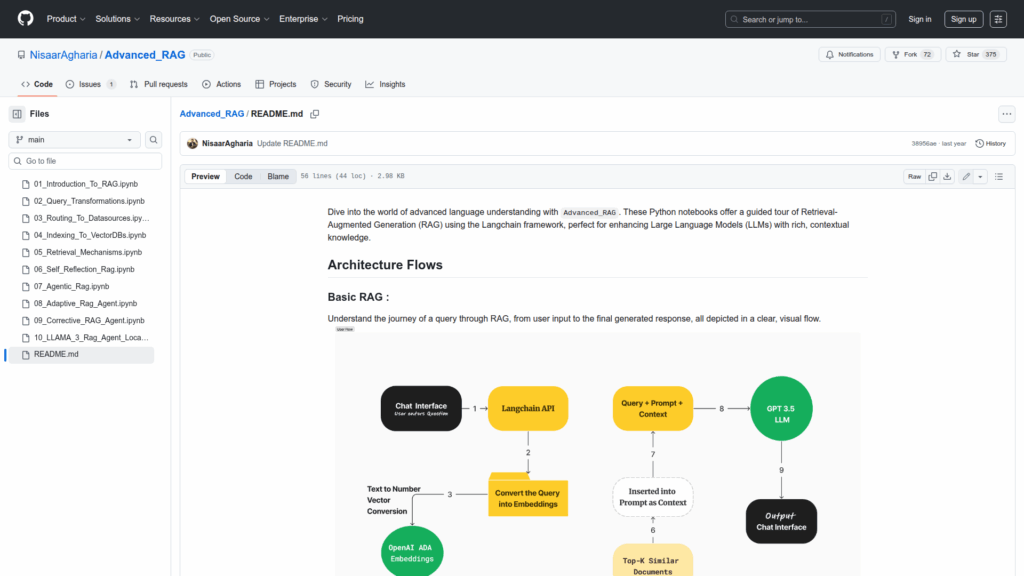Advanced_RAG
Basic Information
Advanced_RAG is a collection of Python Jupyter notebooks that provide a practical, developer-focused guide to building Retrieval-Augmented Generation (RAG) systems using the Langchain framework. The repository documents architecture flows and visual diagrams that show how queries travel from user input through retrieval to final generation. It covers both foundational and advanced RAG patterns, including query construction, Multi Query Retriever approaches, reranking and fusion, routing to multiple datasources, vector database indexing, and agentic RAG designs. Several notebooks explore advanced agent behaviors such as self-reflection, corrective and adaptive agentic flows, and a local LLAMA 3 agent example. The content is intended for engineers, researchers, and practitioners who want hands-on examples and conceptual diagrams to implement and experiment with RAG pipelines.








